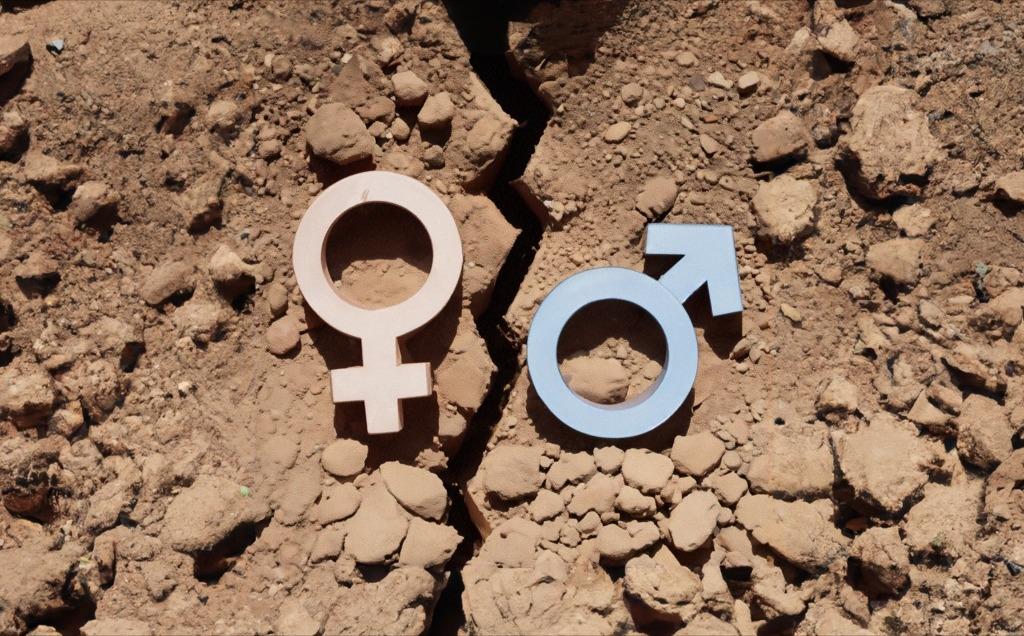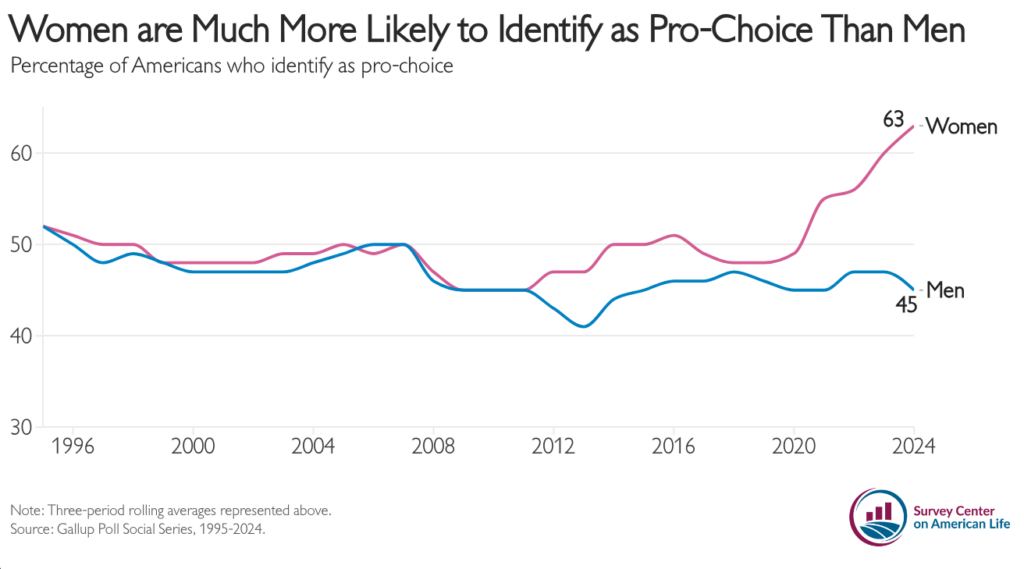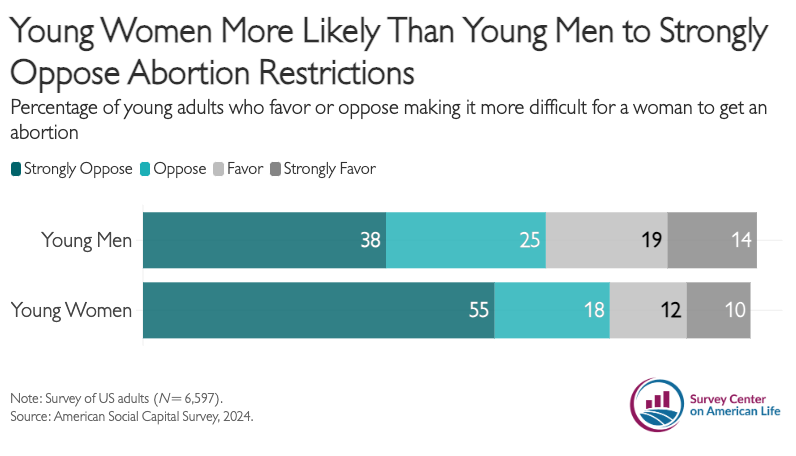Newsletter June 27, 2024
Abortion Is Going to Be a Major Issue in 2024, but for Whom?

It seems inevitable that abortion will be one of the defining issues of the 2024 presidential election, featuring prominently in campaign ads and playing an important role in many down-ballot races too. Yet, despite the conventional wisdom that abortion is a winning issue for Democrats, it may be less critical this year for the simple reason that the views of men and women are moving further apart.
The Great Gender Divide on Abortion
Abortion is one of the rare public policy issues that has remained relatively stable for decades. Gallup polls have shown remarkable consistency over the past 30 years with Americans roughly evenly divided between pro-choice and pro-life identity. That all changed in the last five years. In 2024, Gallup found that 63 percent of women identified as pro-choice, a record high. In contrast, men have not changed much at all in recent years. Only 45 percent of men identify as pro-choice while nearly half (49 percent) identify as pro-life. In fact, there are fewer men who identify as pro-choice today than did so in the mid 1990s when President Bill Clinton argued that abortion should be “safe, legal and rare.”

Attitudes about abortion legality are also showing a rapidly accelerating gender gap. In a post-Roe world, women have become much more supportive of unrestricted access to abortion. Forty-two percent of women now say that abortion should be legal in any circumstances, a remarkable increase over the past five years. In 2019, only 24 percent of women shared this view. On an issue defined by stability, we’re witnessing unprecedented movement among women.
At the same time, the same social and political forces that influenced women have had little effect on men. Today, only 28 percent of men say abortion should be available under any circumstance, views that have remained largely unchanged over the past decade.
The gender divide on abortion is evident among young adults as well. Americans are generally opposed to making abortion more difficult for women to access, but young women are the most strenuously opposed to these restrictions. Nearly three-quarters of young women are opposed to “making it more difficult for a woman to get an abortion,” and more than half (55 percent) are strongly opposed. Young men are more opposed than supportive, but far fewer (38 percent) express strong objections.

Why is This Happening?
There’s something else that’s worth pointing out here. The timing of opinion change in abortion attitudes in the Gallup polls is curious. Most of the movement predated the Dobbs decision. Between 2022 and 2024, women became only slightly more likely to say that abortion should be available in all circumstances, a shift of 4 percentage points. But in the years leading up to the decision there was a substantial uptick in women expressing this view.
My own theory of what’s happening with abortion attitudes is that views about this issue have become wrapped up in broader concerns about the treatment of women in American society. Between 2016 and 2018, the percentage of women who said they were “satisfied with the way women are treated in American society” plummeted. Today, it remains at historic lows. Younger women are among the most frustrated with the treatment of women in American society—only 36 percent report being satisfied with women’s treatment. In the aftermath of Donald Trump’s election and #MeToo, the overturn of Roe v. Wade, which was deeply personal for many women, took on even greater symbolic significance. For many women, the Dobbs decision was further evidence of the erosion of women’s rights and the precarity of their position in American society.
I’ve said it previously, but it’s worth repeating. American attitudes on abortion are complex, and more nuanced than polls suggest. Even if more young women believe there should be fewer restrictions on abortion access, these views often carry an undercurrent of ambivalence. Over the past couple months, we’ve worked with Ipsos to conduct interviews with young people on a variety of subjects. Abortion came up frequently in these conversations, especially among women. Zoe, one young woman we talked to, exemplified these contradictions. “I don’t agree with the views of most feminists [that] you can have an abortion whenever you want an abortion, you can go out and have full access to Plan B because you wanna be a hoe.” In the same breath, she argued that women, particularly single mothers like herself, faced profound challenges in American society. “We need to be able to make more money, we need to have more resources available to us,” she said. “Men shouldn’t decide what we should do with our bodies.”
The politics of abortion are neither simple nor straightforward. Most people agree that the abortion issue was a major reason the Democratic Party did better than expected in the 2022 midterm elections, despite a deeply unpopular president and polling that suggested otherwise. It was certainly salient for some voters. Shortly before the election, we found that more than six in ten young women said the issue was critical to them. But it was far less so for others. Only 32 percent of young men said it was a priority for them.
The gender gap in abortion attitudes reflects wider disagreements about women’s experiences in American society. A recent Pew survey found that more than six in ten (61 percent) men believe that “the obstacles that once made it harder for women than men to get ahead are now largely gone.” Only 35 percent of women agreed. What’s more, the gender gap is wider among the youngest Americans than it is among the oldest.
Whatever role that abortion ends up playing in the 2024 election, and whichever candidate it helps (probably Biden), we’re unlikely to move any closer to a resolution. Abortion will continue to serve as a flashpoint not only between conservatives and liberals, but increasingly between men and women.
Read more on American Storylines








